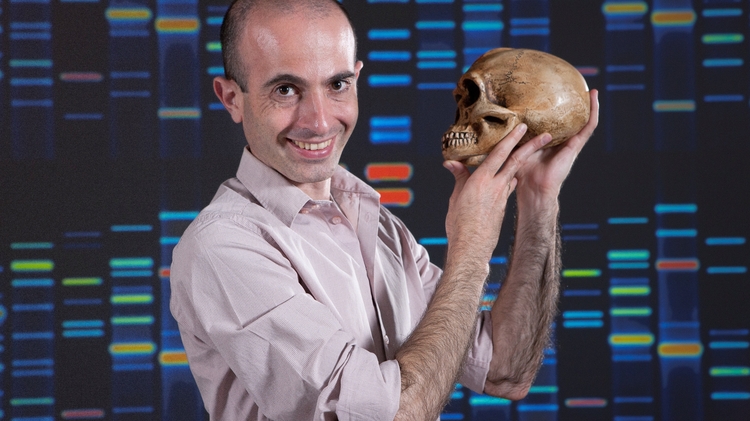
Please note: This event took place in May 2015
Does History Have a Direction
Is history just a random accumulation of accidents, or is it going in some definitive direction? This first Vintage Lecture by Yuval Noah Harari, author of Sapiens, explores three possible directions of human history: power, unity and happiness.
As history unfolded, humankind has become ever more powerful. When history kick-started about 70,000 years ago, Homo sapiens was an insignificant ape in East Africa. Today we are the rulers of the planet, and soon we might upgrade ourselves into gods.
As history unfolded, humankind has become ever more united. Back in the Stone Age, humans lived in isolated tribes, and planet earth was an entire galaxy of separate human worlds. Today all humans are part of a single system. There are no longer any independent countries or authentic cultures, and everyone - Americans, Chinese, Israelis and Iranians - view physics, biology, economics and even politics in a similar way.
As history unfolded, did humans become happier? Is the average person today happier than in ancient or medieval times? Whereas the story of human power and unity is relatively straightforward, the story of human happiness is far less clear. There are good reasons to suspect that we are far more powerful and united than our ancestors - but not much happier.
The lecture builds on Yural Noah Harari's remarkable book Sapiens, which looks at the whole of human history. 100,000 years ago, at least six human species inhabited the earth. Today there is just one. Homo sapiens. How did our species succeed in the battle for dominance? Why did our foraging ancestors come together to create cities and kingdoms? How did we come to believe in gods, nations and human rights; to trust money, books and laws; and to be enslaved by bureaucracy, timetables and consumerism? And what will our world be like in the millennia to come?
Speaker biography:
Yuval Noah Harari has a PhD in History from the University of Oxford and now lectures at the Hebrew University of Jerusalem, specialising in World History. His research focuses on broad questions, such as: What is the relation between history and biology? Is there justice in history? Did people become happier as history unfolded?
65,000 people have signed up to his online course, A Brief History of Humankind. Sapiens is an international bestseller and is being published in more than 30 languages worldwide. In 2012 Harari was awarded the annual Polonsky Prize for Creativity and Originality in the Humanistic Disciplines.
